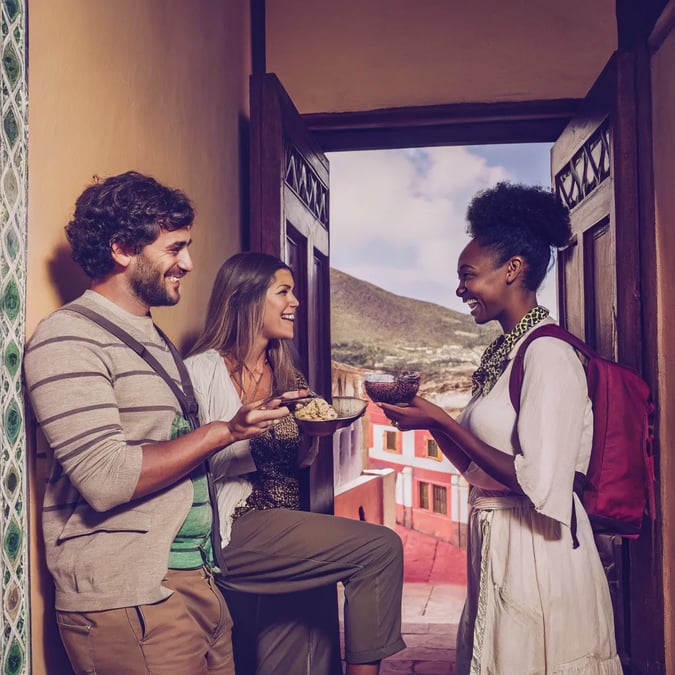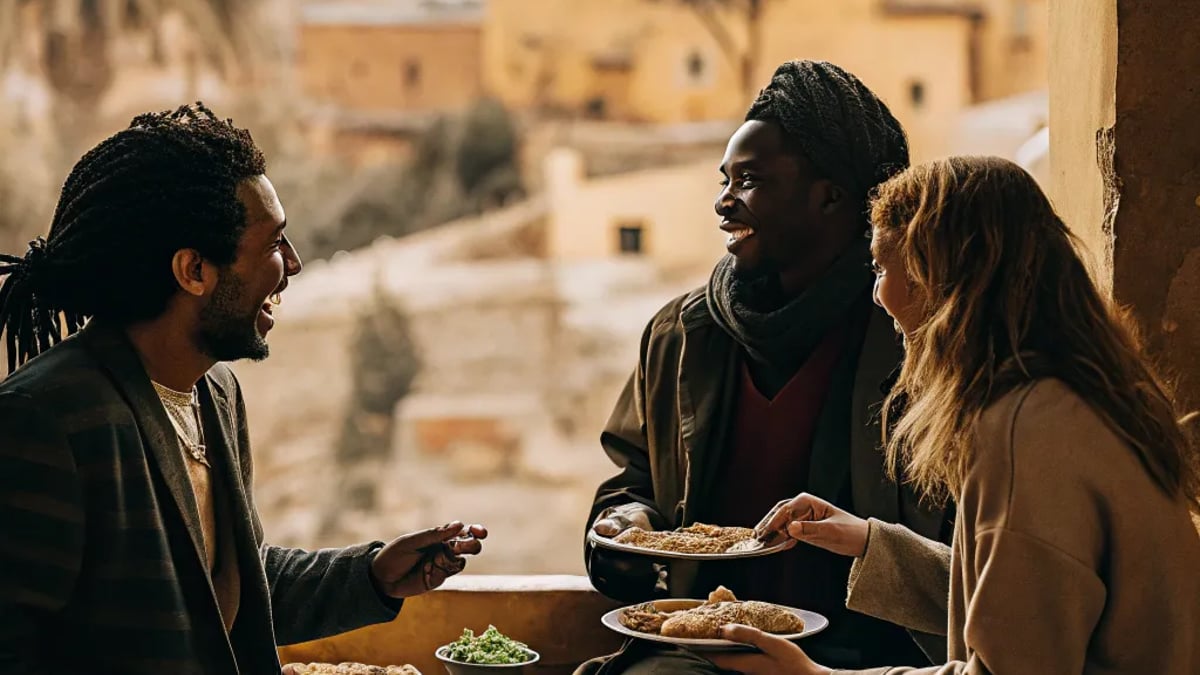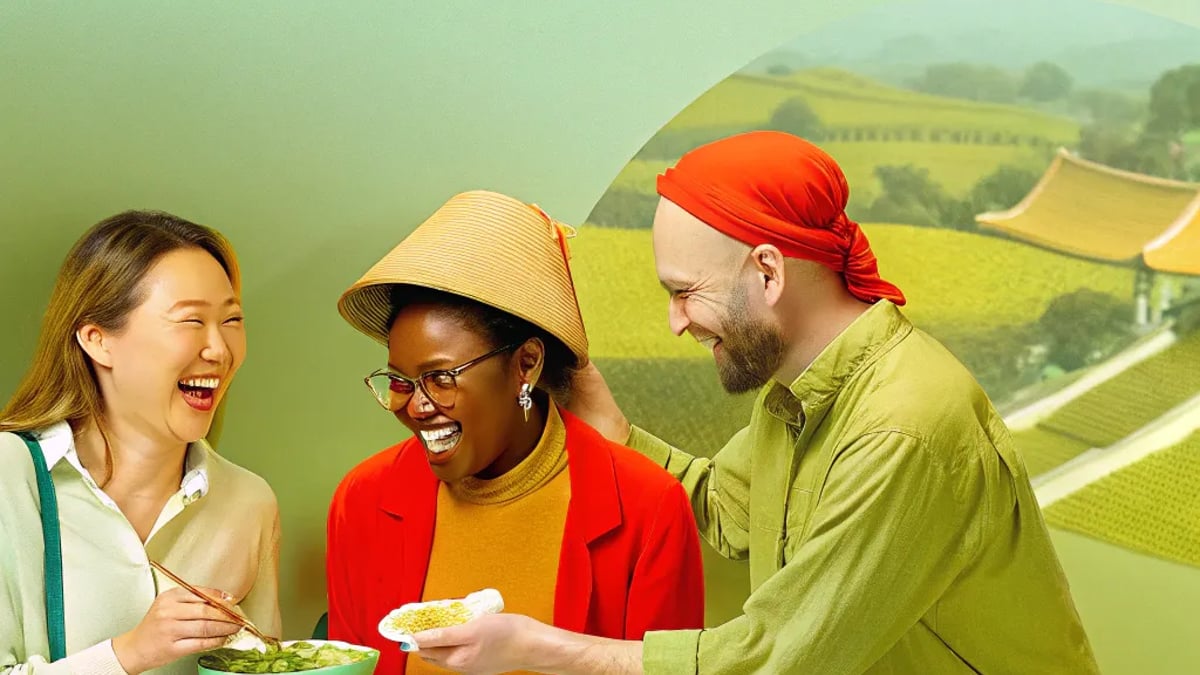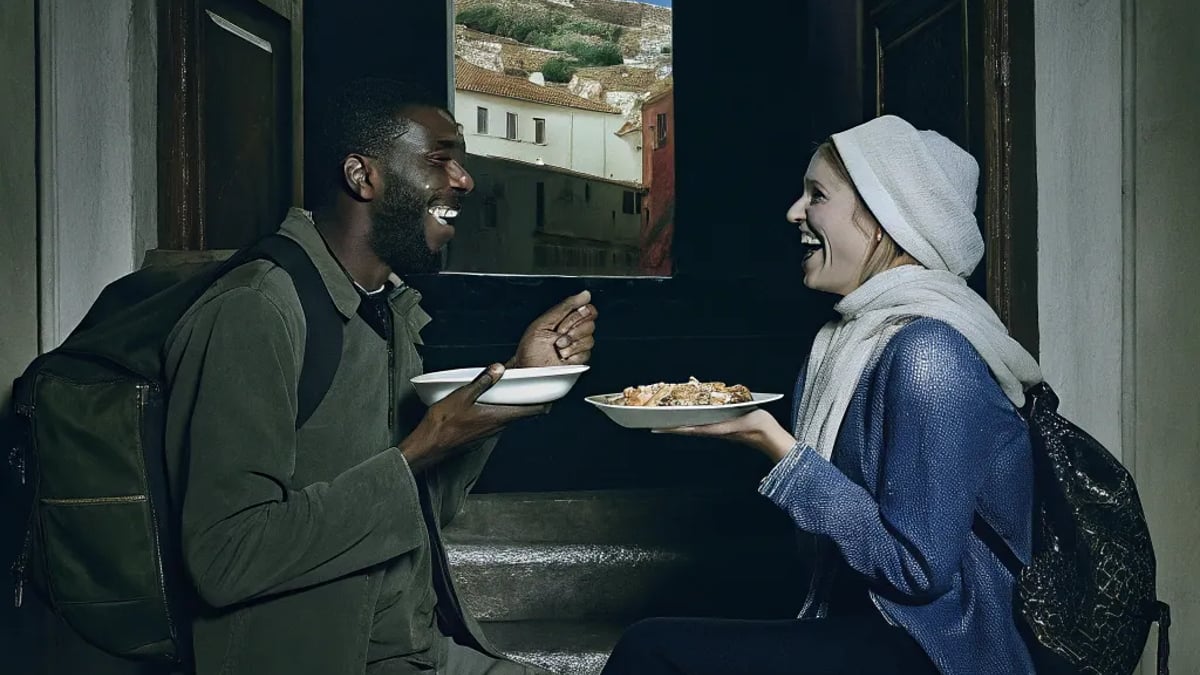
That first week in Lisbon, I sat alone at a neighborhood café, wondering if I'd made a mistake committing to two months in a city where I knew absolutely no one. The barista noticed my travel guidebook and asked what brought me to Portugal. That simple question led to an invitation to a local jazz night, which turned into weekly meetups, and eventually genuine friendships that outlasted my stay.
Slow travel isn't just about spending more time in one place—it's about the depth of experience that comes from meaningful local connections. Unlike whirlwind tourism, slow travel creates space for authentic relationships to develop naturally.
What Makes Slow Travel Perfect for Building Local Friendships
Slow travel fundamentally changes how we experience destinations. Instead of rushing between attractions, you're shopping at the same market, becoming a regular at local cafés, and gradually integrating into community rhythms. This extended presence creates natural opportunities for connection that simply don't exist for tourists passing through.
When Icelandic travel blogger Jón Gunnarsson surveyed over 200 slow travelers, he found that 78% reported making meaningful local friendships during their journeys, compared to just 23% of traditional tourists. The difference? Time and presence.

"Traditional tourism often creates a barrier between visitors and locals," explains cultural anthropologist Maya Rivera. "When you're clearly just passing through, interactions remain transactional. Slow travel breaks down that invisible wall."
The benefits extend beyond just having company. Local friendships transform your travel experience by:
- Providing authentic cultural insights no guidebook can offer
- Opening doors to experiences typically hidden from tourists
- Creating a sense of belonging that enriches your time abroad
- Building a global network that can last years beyond your trip
How Long is "Slow" Enough?
While there's no magic number, most slow travelers find that staying at least 3-4 weeks in one location creates the right conditions for meaningful connections. This timeline allows for the repetition and familiarity that turns "that friendly foreigner" into "my friend from abroad."
Practical Strategies for Meeting Locals While Slow Traveling

Building friendships while traveling requires a blend of intentionality and openness. Here are approaches that consistently work for creating authentic connections:
Become a Regular Somewhere
Nothing signals your temporary-local status like becoming a regular. Choose a café, restaurant, park, or market that you genuinely enjoy, then visit consistently.
Marta, who spent three months in Kyoto, shares: "I went to the same coffee shop every morning for two weeks before the owner started chatting with me. By week four, she was introducing me to her friends and inviting me to community events. That never would've happened if I'd been cafe-hopping like a typical tourist."
The key is consistency paired with genuine appreciation. Don't force conversation—allow relationships to develop naturally through repeated interactions.
Join Local Classes or Workshops

Learning environments create natural opportunities for conversation and connection. Consider:
- Cooking classes featuring local cuisine
- Language exchange meetups
- Craft workshops teaching traditional skills
- Fitness classes or recreational sports
- Dance lessons featuring regional styles
These structured activities provide built-in conversation topics and shared experiences that can easily transition into friendships.
When I joined a twice-weekly ceramics class in Oaxaca, I wasn't just learning pottery techniques—I was building relationships with the teacher and other students that eventually led to dinner invitations and weekend outings.
Leverage Technology Mindfully
While the goal is in-person connection, technology offers valuable starting points:
- Meetup.com hosts gatherings for nearly every interest in cities worldwide
- Facebook Groups for expats or specific interests often welcome travelers
- Language exchange apps like Tandem connect you with locals wanting to practice languages
- Couchsurfing events (not just hosting) attract locally-minded travelers and residents
- Volunteer platforms like WorkAway create structured opportunities to work alongside locals
The key is using these platforms as starting points rather than relying on purely digital relationships.
Volunteer with Local Organizations
Contributing your time and skills creates meaningful connections while giving back to the community hosting you. Look for:
- Community gardens or environmental initiatives
- Food banks or community kitchens
- Animal shelters or wildlife rehabilitation
- Local festivals or cultural events needing volunteers
- Educational programs seeking English conversation partners
Abby, who spent six months slow traveling through South America, notes: "Volunteering twice a week at a community garden in Medellín connected me with locals in a way nothing else did. We were working side by side, sharing lunch breaks, and solving problems together. Those relationships felt real because they were built on shared purpose, not just tourist curiosity."
How Do You Actually Start Conversations with Locals?
Even knowing where to meet people, initiating conversation can feel intimidating. Here are approaches that feel natural rather than forced:
Ask Specific, Genuine Questions
Skip generic tourist questions and ask about things that show you're paying attention to the community:
- "I noticed this dish isn't on many menus—is it something people make more at home?"
- "That festival poster looks interesting—is it something locals actually attend?"
- "I've been wondering about that abandoned building near the square—does it have a story?"
Questions that demonstrate genuine curiosity about local life often receive enthusiastic responses.
Offer Before You Ask
Creating balance in new relationships means offering value before requesting help:
- Share interesting observations from your home country
- Bring a small treat to share with regulars at your café
- Offer assistance with English practice if it's useful
- Show photos from your travels that might interest them
This approach prevents the dynamic from feeling one-sided.
Embrace the "I'm New Here" Position
Being new is actually an advantage—it gives you permission to ask questions and make minor social mistakes. Most people respond warmly to genuine newcomers.
As Reddit user u/travelbuddy22 noted in a popular r/solotravel thread: "I'm awkward af but found that openly admitting 'I'm traveling alone and trying to meet people' works surprisingly well. Most folks respect the honesty and remember what it's like to be the new person."
What If You're Shy or Introverted?
Not everyone finds social connection effortless, but slow travel actually offers advantages for introverts:
- The extended timeframe removes pressure to connect immediately
- Repeated casual encounters can gradually build comfort
- Structured activities provide conversation frameworks
- You can pace social interaction with plenty of alone time
Sarah, a self-described introvert who spent three months in Ljubljana, shares: "I found that joining a weekly hiking group was perfect. The activity gave us something to focus on besides conversation, and seeing the same people repeatedly meant relationships developed naturally without forced small talk."
Building Trust: Moving from Acquaintance to Friend
True friendship requires trust, which develops differently across cultures. These principles help navigate the transition from pleasant acquaintance to genuine friend:
Respect Cultural Context
Friendship norms vary dramatically across cultures. In some regions, invitations to family homes come quickly; in others, such invitations represent a significant milestone. Research local customs and follow the pace set by your new acquaintances.
Cultural consultant Diego Martínez explains: "Americans often mistake friendliness for friendship and rush the process. In many Mediterranean and Latin cultures, for example, relationships develop through repeated small interactions before deeper connection."
Be Reliably Yourself
Authenticity builds trust. While respecting local customs is important, pretending to be someone you're not creates relationships built on false premises.
"Locals can spot inauthentic travelers trying too hard to 'go native,'" notes travel writer Ella Chen. "Being respectfully yourself—curious, appreciative, but still you—creates space for genuine connection."
Navigate the Tourist-Local Dynamic
Acknowledge the reality of temporary connections without defining relationships solely by your visitor status.
"I never pretend I'm moving there permanently," explains long-term slow traveler Marcus. "But I also don't treat local friendships as just tour guides or cultural informants. Real friendship means caring about their lives beyond how they relate to my travel experience."
How Do You Maintain Connections After Leaving?
The bittersweet reality of travel friendships is eventually moving on. These approaches help maintain meaningful connections:
Set Clear Expectations
Before departing, have honest conversations about staying in touch. Different cultures and individuals have varying expectations about continued communication.
Create Meaningful Closure
Rather than ghosting or awkward goodbyes, create intentional closure:
- Host a small gathering to thank local friends
- Exchange contact information with those you genuinely want to stay connected with
- Share specific memories that made your time together meaningful
- If appropriate, exchange small gifts that represent your time together
Maintain Realistic Connection
Social media makes staying connected easier, but quality matters more than quantity:
- Share occasional meaningful updates rather than constant superficial contact
- Remember important events in their lives
- Make concrete plans to reconnect if you return to the region
- If possible, offer hospitality when they travel to your home country
What About Language Barriers?
While shared language certainly facilitates connection, meaningful friendships can develop despite limited verbal communication.
"Some of my most memorable connections happened with minimal shared vocabulary," shares photographer Elena, who slow traveled through rural Japan. "We communicated through food, music, photos, and Google Translate. The effort we both made to understand each other actually created a special kind of bond."
Practical approaches include:
- Learning basic conversation in the local language
- Using translation apps for complex conversations
- Focusing on shared activities that don't require constant talking
- Embracing non-verbal communication and cultural exchange
How Do Locals Benefit from These Friendships?
Ethical travel means considering relationships from both perspectives. While travelers gain cultural insights and authentic experiences, locals potentially receive:
- Cultural exchange and new perspectives
- Language practice opportunities
- Expansion of their own social networks
- Economic support for local businesses
- Fresh appreciation for their own cultural heritage
As Reykjavik local Andri told Under30Experiences: "Showing travelers my city helps me see it through fresh eyes. These friendships go both ways—I'm not just giving information, I'm gaining new perspectives and connections to the wider world."
Common Questions About Building Local Friendships
How do I avoid coming across as a clueless tourist?
Do basic research before arriving, learn a few key phrases in the local language, observe cultural norms before diving in, and approach interactions with humility rather than assumptions.
What if I make a cultural mistake?
Cultural missteps happen to everyone. When they do, apologize sincerely, ask for clarification, thank the person for their patience, and adjust your behavior moving forward.
How can I tell if someone is being friendly or just seeking tourist dollars?
This discernment develops with experience, but generally, connections that consistently steer toward commercial transactions or feel rushed rather than developing naturally may have ulterior motives. Trust your instincts while remaining open to genuine connection.
Is it weird to be friends with people much older or younger than me while traveling?
Age differences often matter less in travel friendships than in home environments. Shared interests and genuine curiosity can bridge generation gaps, creating unique intergenerational connections.
The Lasting Impact of Local Friendships
The friendships formed during slow travel often become the most treasured souvenirs of your journey. They transform your experience from observation to participation and create a global network that enriches your life long after you've returned home.
As travel writer Pico Iyer beautifully expressed: "The real voyage of discovery consists not in seeing new landscapes, but in having new eyes." Local friendships provide those new eyes—perspectives that forever change how you see not just your destination, but your own culture and assumptions.
When I think back to that lonely first week in Lisbon, I'm grateful for the barista who bridged the gap between tourist and temporary local. The jazz nights, impromptu Portuguese lessons, and Sunday lunches that followed didn't just make my trip more enjoyable—they fundamentally changed my understanding of both Portuguese culture and my approach to travel itself.
Slow travel creates the conditions for these connections, but building them requires showing up—consistently, authentically, and with genuine curiosity about the lives and perspectives of those who call your temporary home their permanent one.
Tags

About Clara Vanderbeek the Author
Clara Vanderbeek is a consummate wanderer and slow-travel aficionado, dedicated to crafting thoughtful travel guides that encourage travelers to savor every moment and delve deeper into the heart of each destination. Her expertise lies in uncovering hidden gems and local cultures, fostering genuine connections with the places she explores.
Recommended Articles
No Rinse Body Wipes Seniors Love for Easy Clean Anytime
Discover the convenience of no rinse body wipes for seniors, promoting hygiene and making personal care easier anytime, anywhere.
Ranked: The Candy Bars Americans Love Most
Discover the fascinating world of America's favorite candy bars, where classic flavors like Snickers and Reese's Peanut Butter Cups reign supreme while newcomers and artisanal treats vie for attention in a landscape of evolving tastes. From regional preferences to the exciting convergence of candy and protein bars, this article unveils the sweet dynamics reshaping America's confectionary cravings and hints at the irresistible trends shaping the future of our sweet tooths.
The Candy Bar Everyone’s Fighting Over This Year
Dive into the candy craze of 2025 as an unexpected nostalgic chocolate bar sweeps the sweet-toothed nation, skyrocketing to the top of candy rankings and inciting store aisle skirmishes fueled by scarcity, social media buzz, and celebrity endorsements. Discover how this simple yet sensational confection has turned into a coveted status symbol and whether it truly lives up to the hype, as it reshuffles long-standing favorites on the candy shelves to become the season's hottest indulgence.
Fun Hobbies Seniors Are Loving in 2025
Discover how seniors are reshaping retirement life with trending hobbies in 2025 that blend creativity, activity, and social connection, from captivating photography and dance classes to innovative virtual reality adventures. Whether capturing meaningful moments or exploring new talents, these pursuits are enhancing older adults' mental and physical wellbeing, offering a vibrant, fulfilling lifestyle for every interest and ability.
Living with a Host Family: The Deepest Travel Experience I’ve Had
Dive into the transformative world of cultural immersion as the author shares their profound experiences of living with host families across the globe, from mastering homemade tortilla española in Spain to embracing the art of kintsugi in Japan. This article not only highlights the joys and challenges of navigating new family dynamics but also offers practical tips on finding the perfect host family for a truly authentic travel experience that promises lifelong connections and insights far richer than fleeting tourist encounters.




